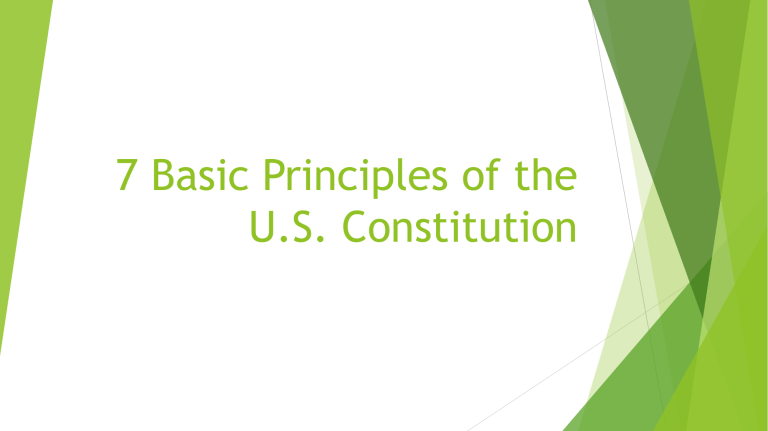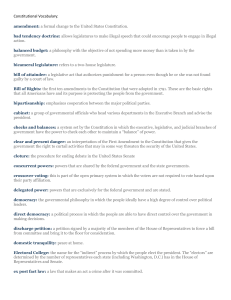
7 Basic Principles of the U.S. Constitution 1. Popular Sovereignty The principle that the authority of a state and its government is created and sustained by the consent of its people, through their elected representatives (Rule by the People), who are the source of all political power. 2. Limited Government Placing limits of restrictions on what the government can do –Doing only what is allowed by the rule of law Dates back to the English Bill of Rights and Magna Carta 3. Individual Rights Protecting Bill the rights of citizens of Rights – 1st 10 Amendments of the U.S. Constitution 4. Republicanism/Representative Government Electing representatives to speak for the people House of Representatives Senate 5. Federalism Balancing the power of the government between the states and the federal (national) government. Federal Govt (stronger) Shared Powers State Govt (weaker) 6. Separation of Powers Legislative Executive Judicial Branch – Makes the laws Branch – Enforces the laws Branch (courts) – Interprets the laws 7. Checks and Balances Each This Branch is accountable to the other ensures that no one branch of the government has too much power.











